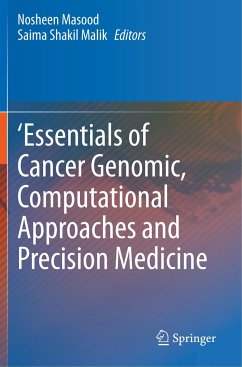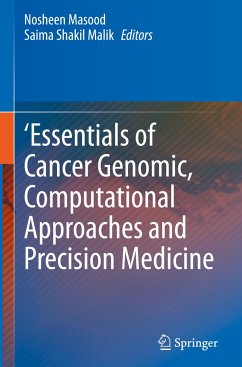
Computational Methods for Precision Oncology

PAYBACK Punkte
76 °P sammeln!
Precision medicine holds great promise for the treatment of cancer and represents a unique opportunity for accelerated development and application of novel and repurposed therapeutic approaches. Current studies and clinical trials demonstrate the benefits of genomic profiling for patients whose cancer is driven by specific, targetable alterations. However, precision oncologists continue to be challenged by the widespread heterogeneity of cancer genomes and drug responses in designing personalized treatments. Chapters provide a comprehensive overview of the computational approaches, methods, an...
Precision medicine holds great promise for the treatment of cancer and represents a unique opportunity for accelerated development and application of novel and repurposed therapeutic approaches. Current studies and clinical trials demonstrate the benefits of genomic profiling for patients whose cancer is driven by specific, targetable alterations. However, precision oncologists continue to be challenged by the widespread heterogeneity of cancer genomes and drug responses in designing personalized treatments. Chapters provide a comprehensive overview of the computational approaches, methods, and tools that enable precision oncology, as well as related biological concepts. Covered topics include genome sequencing, the architecture of a precision oncology workflow, and introduces cutting-edge research topics in the field of precision oncology. This book is intended for computational biologists, bioinformaticians, biostatisticians and computational pathologists working in precision oncology and related fields, including cancer genomics, systems biology, and immuno-oncology.












